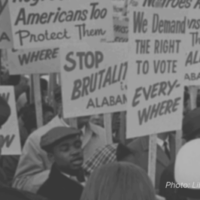Nationwide — In October, the U.S. gained 150,000 jobs and the unemployment rate edged up to 3.9% according to new data from the Bureau of Labor Statistics. Job growth was much slower than it had been over the preceding year. October’s unemployment rate was 5.8% for Black workers, 4.8% for Latinx workers, 3.5% for white workers, and 3.1% for Asian workers. Continuing disparities in unemployment rates are a result of structural racism in the U.S. labor market.
“As the labor market slows—that’s the moment to put policies in place so the unemployment insurance (UI) system will be prepared for the next economic downturn,” said Rebecca Dixon, president and CEO of the National Employment Law Project. “Just last week, the Unemployment Insurance Modernization and Recession Readiness Act was introduced in Congress. Legislators must act urgently to pass this critical legislation so that workers and the economy can withstand a future crisis and come back thriving. This bill will also build a stronger and more inclusive UI system to support workers who lose their jobs under any economic conditions.”
The Unemployment Insurance Modernization and Recession Readiness Act, introduced by Senators Ron Wyden (D-OR) and Michael Bennet (D-CO) and Representative Don Beyer (D-VA), modernizes the Extended Benefits program that makes additional weeks of unemployment benefits available in times of high unemployment and makes essential reforms to the regular unemployment insurance system, including mandating that states offer at least 26 weeks of unemployment benefits, raising benefit amounts to replace a greater share of workers’ prior earnings, and increasing coverage for part-time workers, temp workers, and workers whose earnings fluctuate over time. The bill also establishes a new, federally funded Jobseekers Allowance to support jobless workers who would not otherwise be covered by unemployment insurance.
The new legislation would produce a more racially equitable UI system. The unemployment rate for Black workers in October was substantially higher than the unemployment rate for white workers. This disparity reflects structural racism in the labor market, including discrimination in hiring, and illustrates why reforming unemployment insurance is a vital racial equity concern.
While Black workers face higher rates of unemployment and longer periods of joblessness, they are less likely than white workers to obtain UI benefits and receive lower benefits relative to their prior paychecks on average. A central reason why the unemployment insurance system shortchanges Black workers is that the states where more Black workers live have more restrictive and less generous UI rules. By setting new national standards for UI eligibility and benefit levels, the Unemployment Insurance Modernization and Recession Readiness Act will help level the playing field so Black workers have support to find new jobs and thrive.
The bill’s new Jobseeker Allowance will benefit Black caregivers returning to the workforce as they look for employment. In an era of mass incarceration that disproportionately targets Black people, the Jobseeker Allowance will also provide crucial support to people returning to the labor market after incarceration, who face exceptionally high levels of joblessness and numerous barriers to employment.
Another bill introduced in Congress this month would extend unemployment insurance benefits to workers on strike or whose jobs are impacted by strikes. The Empowering Striking Workers Act introduced by Representatives Adam Schiff (D-CA), Alexandria Ocasio-Cortez (D-NY), and Donald Norcross (D-NJ), is modeled on laws already in effect in New York and New Jersey and would ensure that workers don’t risk their livelihoods to stand up for their rights.
The newly introduced bills demonstrate that legislators recognize the importance of overhauling the unemployment insurance system. Yet the 6.5 million workers who were unemployed in October and the millions of others at risk of losing their jobs in the next recession cannot wait. Congress must act with urgency to build the political will to pass these laws.



